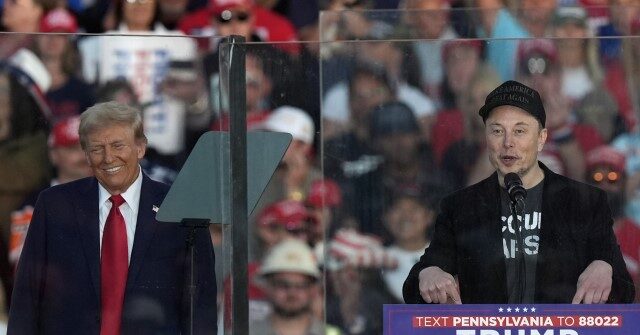In a revealing episode of the Joe Rogan Experience podcast, tech mogul Elon Musk offered a scathing critique of the corporate media landscape and the rising tide of censorship and authoritarianism, particularly from the political left. Musk, known for his significant support of former President Donald Trump, articulated his concerns regarding the current state of free speech and open discourse in America. He posited that the media often misleads the public, particularly less informed voters, by presenting narratives engineered through selective editing and the manipulation of statements taken out of context.
Musk’s criticism centered on how corporate media has handled narratives surrounding Trump, specifically highlighting instances where the former president’s comments were distorted. He recounted how Trump’s remark about “very fine people” at the Charlottesville protests was taken out of context and points to coverage that misrepresented Trump’s stance on women’s rights through misleading advertisements, such as one from Vice President Kamala Harris. Musk lamented the media’s penchant for reducing complex speeches to stripped phrases that fail to convey the original meaning, a tactic that he believes unfairly portrays Trump in a negative light.
The billionaire entrepreneur extended his critiques beyond media portrayals of Trump to reflect upon the targeting of his own ventures, namely SpaceX. Musk expressed a sense of grievance towards regulatory bodies, claiming that authorities predetermined SpaceX as a target and subsequently searched for justification to investigate. This echoed the historical practices of oppressive regimes, as Musk likened the situation to tactics utilized by Lavrentiy Beria, a secret police chief during Stalin’s regime, indicating a concern about a loss of fairness and objectivity in regulatory oversight.
A significant aspect of Musk’s commentary focused on the left’s increasing inclination toward censorship and a hostile environment for free speech. Once aligned with progressive ideals, Musk articulated disillusionment with the Democratic Party’s current stance, which he believes has morphed into one that stifles open dialogues and the expression of dissenting opinions. Musk asserted that attempts to limit communication stem from a desire to impose unopposed agendas, portraying such censorship as reflective of broader authoritarian ambitions.
Musk also pointed to specific instances such as the media’s portrayal of a recent Trump rally at Madison Square Garden. He interrogated the severe comparisons drawn by some outlets like MSNBC, which labeled the event as reminiscent of Nazi gatherings. Musk noted the diversity present at the rally, mentioning the attendance of various races and religions, especially highlighting the presence of Israeli flags and Jewish speakers. This contrast, he argued, showcased how the media’s labeling can misrepresent reality and further perpetuate division rather than foster understanding.
Following the podcast discussion, the dialogue continued to gain traction as Joe Rogan publicly endorsed Trump via a post on Musk’s X platform. The interplay between Musk’s assertions and Rogan’s platform has ignited further conversation, reflecting a broader cultural moment surrounding media, political discourse, and the urgency of maintaining the values of free speech in a contentious political environment. Musk’s candid remarks serve as a rallying point for those who feel similarly disenfranchised by prevailing narratives, raising critical questions about the integrity of information and the role of media in democracy.

